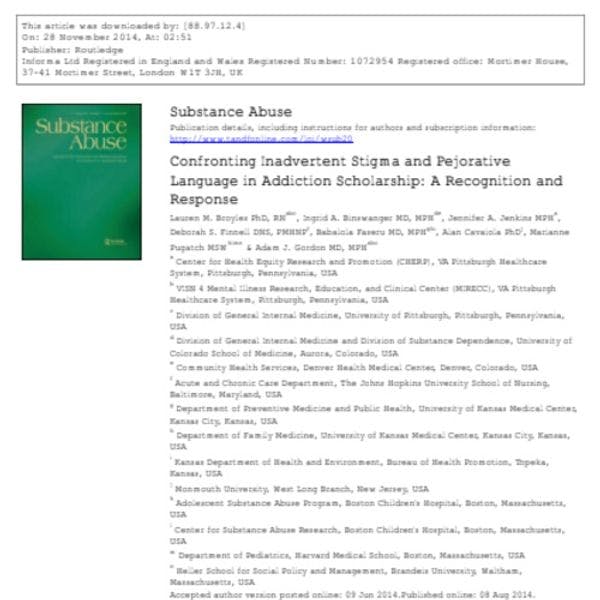Confronting inadvertent stigma and pejorative language in addiction research
Appropriate use of language in the field of addiction is important. Inappropriate use of language can negatively impact the way society perceives substance use and the people who are affected by it. Language frames what the public thinks about substance use and recovery, and it can also affect how individuals think about themselves and their own ability to change.
But most importantly, language intentionally and unintentionally propagates stigma: the mark of dishonor, disgrace, and difference that depersonalizes people, depriving them of individual or personal qualities and personal identity. Stigma is harmful, distressing, and marginalizing to the individuals, groups, and populations who bear it. For these reasons, the Editorial Team of Substance Abuse seeks to formally operationalize respect for personhood in our mission, our public relations, and our instructions to authors.
We ask authors, reviewers, and readers to carefully and intentionally consider the language used to describe alcohol and other drug use and disorders, the individuals affected by these conditions, and their related behaviors, comorbidities, treatment, and recovery in our publication.
Specifically, we make an appeal for the use of language that (1) respects the worth and dignity of all persons ("people-first language"); (2) focuses on the medical nature of substance use disorders and treatment; (3) promotes the recovery process; and (4) avoids perpetuating negative stereotypes and biases through the use of slang and idioms. In this paper, we provide a brief overview of each of the above principles, along with examples, as well as some of the nuances and tensions that inherently arise as we give greater attention to the issue of how we talk and write about substance use and addiction.
Keep up-to-date with drug policy developments by subscribing to the IDPC Monthly Alert.
